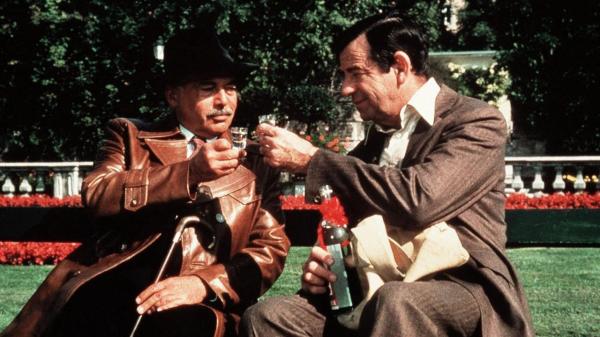
History is the ultimate spoiler in the Japanese anime “In This Corner of the World,” which follows an ordinary Japanese family as they eke out a simple but happy existence in a seaside village. But as we watch their day-to-day life, we feel a mounting sense of dread, because this is the 1930s and 1940s, and the bay they live by is Hiroshima Bay.
Writer-director Sunao Katabuchi is mostly circumspect about showing the devastation of war, instead focusing on its effect on these characters. But this poignant and heartbreaking film is definitely for older kids and adults only.
“In This Corner of the World,” distributed in the United States by Shout! Factory, is now playing at Marcus Point.
The film follows Suzu (Rena Nounen), a young woman from the village of Hiroshima. As a girl, she loves to draw, and the film brings her pencil drawings and watercolors playfully to life. When she looks out at the bay, the whitecaps look like hopping white rabbits to her, and so they go into the painting.
At 18, Suzu is forced to move to the neighboring village of Kure and marry a quiet young clerk, living with his family. At first, this seems like a hard and unfair life, as the family requires Suzu to do all the cooking and cleaning for them, and Suzu’s new husband seems distant. But she gradually warms to this new life, and her husband and in-laws prove to be kind people.

As the film moves slowly forward, we see how the war impacts this little family before the first bomb is even dropped. Sugar and soy sauce are rationed, forcing them to get creative at mealtime. The authorities, hunting for spies, are suspicious of Suzu’s artwork, and forbid her from painting.
Then the planes come, and we feel the true terror of life during wartime, the endless air raid drills, the loss of family and neighbors, the destruction everywhere. The film focuses on the resilience of these people, their determination to help each other and keep living their lives as best they can.
The hand-drawn two-dimensional animation is stunning. It captures both the flights of fancy of Suzu’s imagination and the reality of her life in Kure. The animators drew from actual photos of the village to make the world they drew as realistic as possible – even the brands of the candy bars in the store are accurate.
“In This Corner of the World” is a low-key, at times slow-moving film. But it builds cumulative power because we spend so much time, day in and day out, with this family. Their story, and their survival, becomes important to us.










